Hotel Workers Reveal 15 Red Flags At Check-In + 3 Must-Know Tips

Stepping into your hotel lobby should feel like the start of something good—but sometimes, the warning signs are there from the moment you check in. I’ve worked behind the front desk and behind the scenes, and trust me: hotel staff can usually spot a problem long before guests realize what’s gone wrong.
Ever noticed stained carpets, distracted front desk agents, or odd smells in the lobby? These aren’t just little quirks—they can signal bigger issues, from poor management to lax cleanliness standards.
I’ve put together the telltale red flags that seasoned travelers (and industry insiders) never ignore, plus a few smart questions to ask at check-in that can save your entire stay. Curious what your hotel might be hiding behind that welcome smile? Let’s dive into the signs that say, “Maybe you should’ve booked somewhere else.”
1. No One at Front Desk

Walking into a hotel lobby with no staff in sight is more than inconvenient—it’s a major security concern. Professional hotels always maintain front desk coverage, even during overnight hours.
I once arrived at a small motel where I waited 20 minutes before someone appeared. During that time, anyone could have accessed guest areas unsupervised. Legitimate hotels have protocols to ensure the desk is never abandoned.
If nobody appears after a reasonable wait (5 minutes max), consider finding alternative accommodation. This neglect often reflects broader management problems that could affect your safety and comfort throughout your stay.
2. Staff Avoid Eye Contact
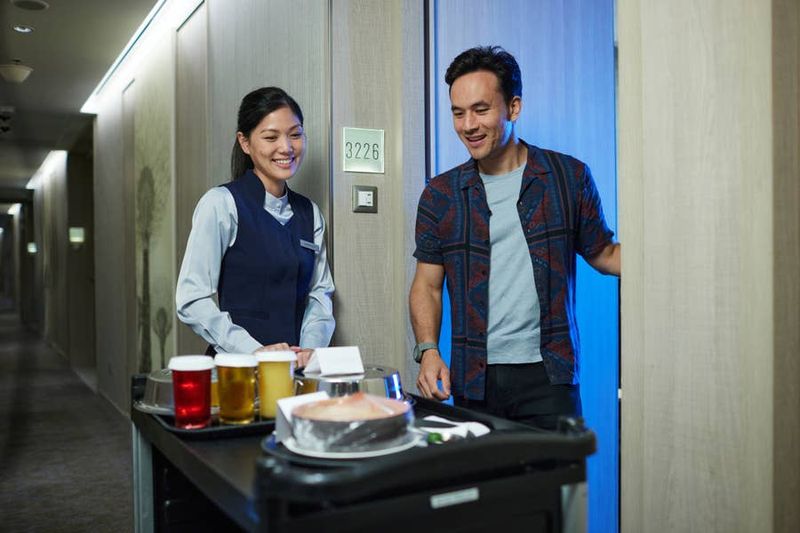
When hotel employees won’t look you in the eye, they might be hiding something. Honest staff engage confidently with guests, answering questions directly and maintaining professional eye contact.
During my hotel management career, I trained teams to be transparent. Shifty behavior often indicates staff know about problems they’re not allowed to disclose—like ongoing renovations, pest issues, or security incidents.
Beyond being uncomfortable, this lack of engagement suggests communication problems throughout the hotel. If the check-in experience feels dishonest, you’ll likely encounter more issues during your stay when you need assistance with room problems or service requests.
3. Lobby Looks Unclean
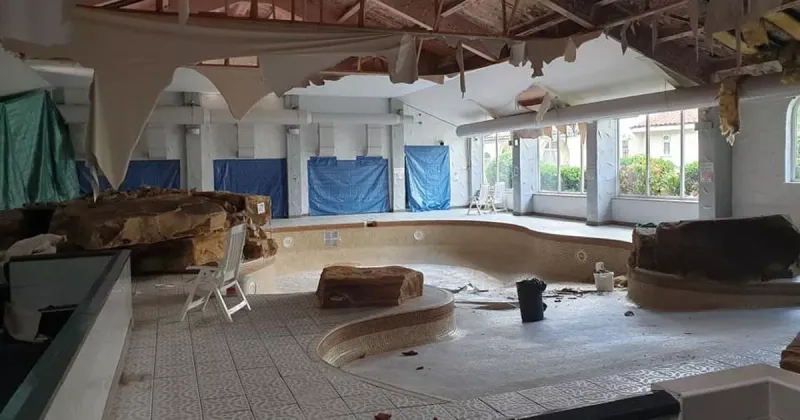
A dirty lobby speaks volumes about the entire operation. The front entrance is the hotel’s face—if they can’t keep it clean, imagine what lurks in less visible areas.
Dusty furniture, stained carpets, and overflowing trash bins aren’t just aesthetic issues; they indicate serious neglect of basic maintenance. Hotels operate cleaning schedules around the clock, especially in high-traffic areas.
Pay attention to details like fingerprints on glass doors, dirty corners, or unvacuumed floors. These visible cleanliness failures suggest even worse conditions in your room, particularly for critical but less obvious cleaning tasks like sanitizing bathroom surfaces or changing bed linens between guests.
4. Guest Complaints Nearby
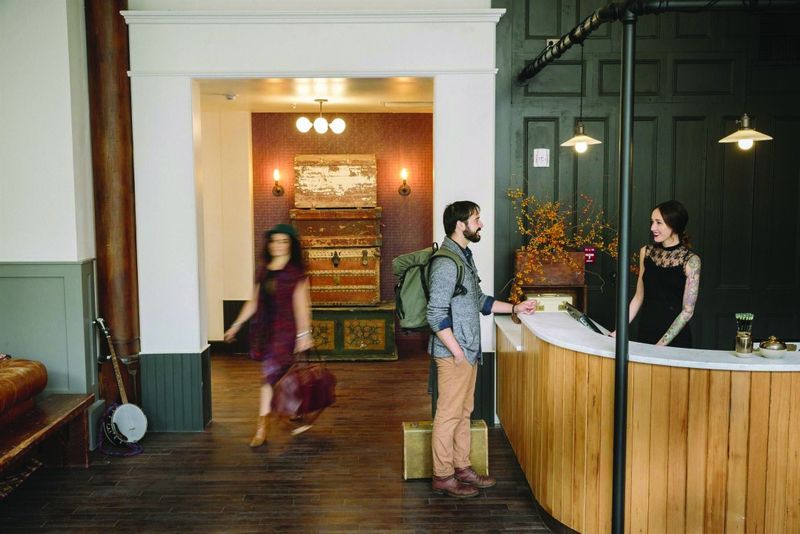
If you’re standing in line and overhear other guests complaining, take note. Multiple complaints about similar issues indicate systemic problems, not isolated incidents.
During my time working at hotels, legitimate properties address complaints quickly and discreetly. When you witness arguments at the front desk about broken amenities, cleanliness, or billing discrepancies, it’s a warning sign.
Most telling is how staff handle these situations. Good hotels empower employees to resolve issues immediately. If staff seem helpless or dismissive when facing complaints, it reveals poor training and customer service standards—red flags that will likely affect your stay too.
5. Refusing to Show Room

Any hotel unwilling to show you a room before booking has something to hide. Reputable establishments are proud of their accommodations and happy to showcase them when occupancy allows.
I’ve managed properties where room previews were standard practice for walk-in guests. Hotels with nothing to hide welcome inspection. If staff claim “all rooms are identical to photos online” but won’t let you verify, be suspicious.
This refusal often masks problems like outdated furnishings, cleanliness issues, or rooms significantly smaller than advertised. Trust your instincts—if they’re being secretive about the product you’re paying for, there’s usually a reason they don’t want you to see it first.
6. Wi-Fi Isn’t Working

When the hotel’s Wi-Fi is “temporarily down” during check-in, it could signal deeper infrastructure problems. Reliable properties maintain consistent internet service—it’s no longer a luxury but a basic utility.
Working at various hotels taught me that internet outages rarely happen in isolation. Often they indicate outdated systems, neglected maintenance, or cost-cutting measures affecting other services. If they can’t keep Wi-Fi running, what else are they struggling to maintain?
Ask specific questions about when service will resume. Vague answers suggest the problem is ongoing rather than temporary. This is especially problematic for business travelers or families who need connectivity for work or entertainment during their stay.
7. Overbooking Excuses
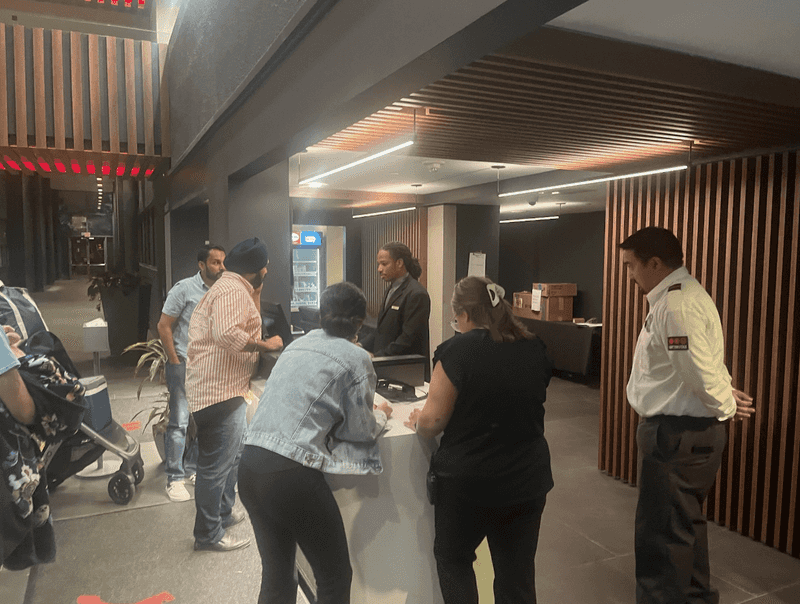
If staff start mentioning “system errors” or “unexpected maintenance” affecting your confirmed reservation, you’re likely facing an overbooking situation. Hotels sometimes deliberately overbook, gambling that some guests won’t show up.
During my front desk days, I witnessed managers scrambling when all guests actually arrived. Ethical hotels admit the mistake and make it right with upgrades or alternative accommodations. Watch out for attempts to downgrade your room while charging the same rate.
Phrases like “the only room we have left is…” should trigger skepticism. Request compensation for any room changes that don’t match what you booked. Better hotels will offer transportation to sister properties or significant discounts if they can’t honor your original reservation.
8. Security Feels Lax
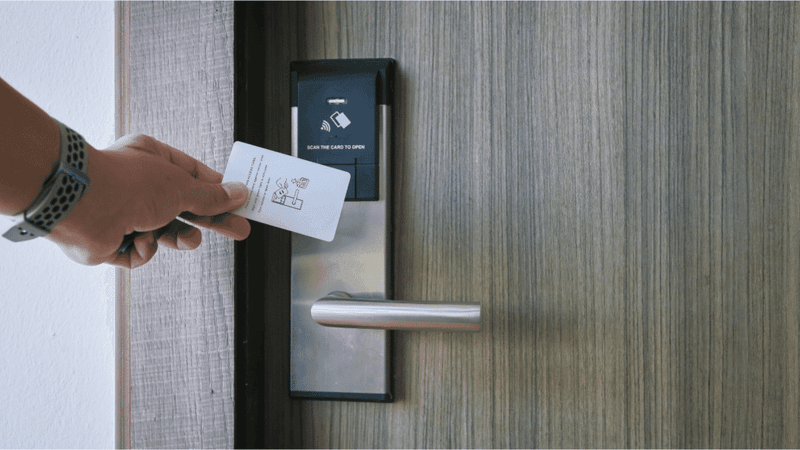
Hotels with proper security measures protect both guests and their belongings. Warning signs include public access to guest floors without key cards, unlocked side entrances, or staff handing out room keys without verifying identity.
I once consulted for a hotel where anyone could walk in from the street directly to guest floors. Within months, they experienced multiple theft incidents. Secure properties control access points and train staff in verification procedures.
Notice whether front desk agents announce your room number loudly or write it down discreetly. They should never verbally state your room number where others can hear it. These seemingly small security practices make significant differences in preventing unauthorized access to your room.
9. No Elevator Access
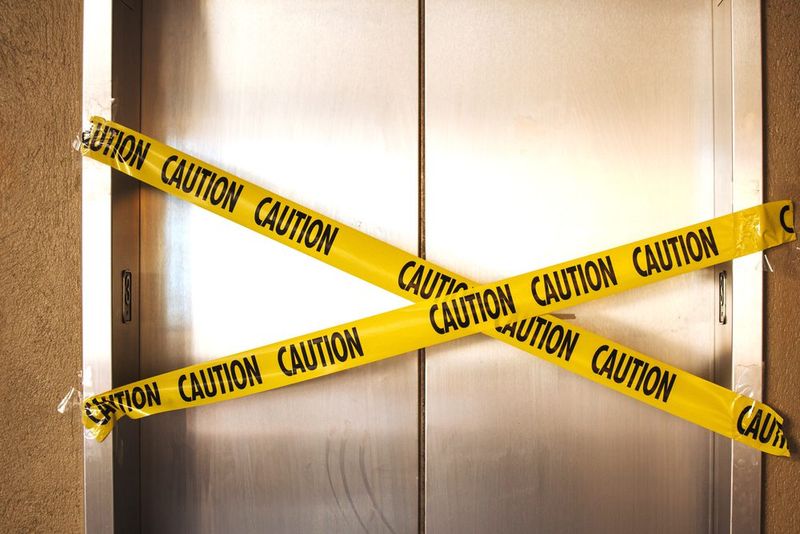
Learning at check-in that elevators are “out of service” creates more than convenience issues—it signals neglected maintenance and possible ADA compliance problems. Functioning elevators are essential infrastructure, not optional amenities.
My experience in hotel operations taught me that properties with working capital maintain elevators properly through regular service contracts. Elevators that remain broken for days indicate serious financial or management problems.
Beyond the inconvenience of carrying luggage upstairs, this situation creates accessibility barriers for elderly guests, families with young children, and travelers with disabilities. If they’re cutting corners on something as fundamental as vertical transportation, question what other essential systems might be compromised.
10. Locked Emergency Exits
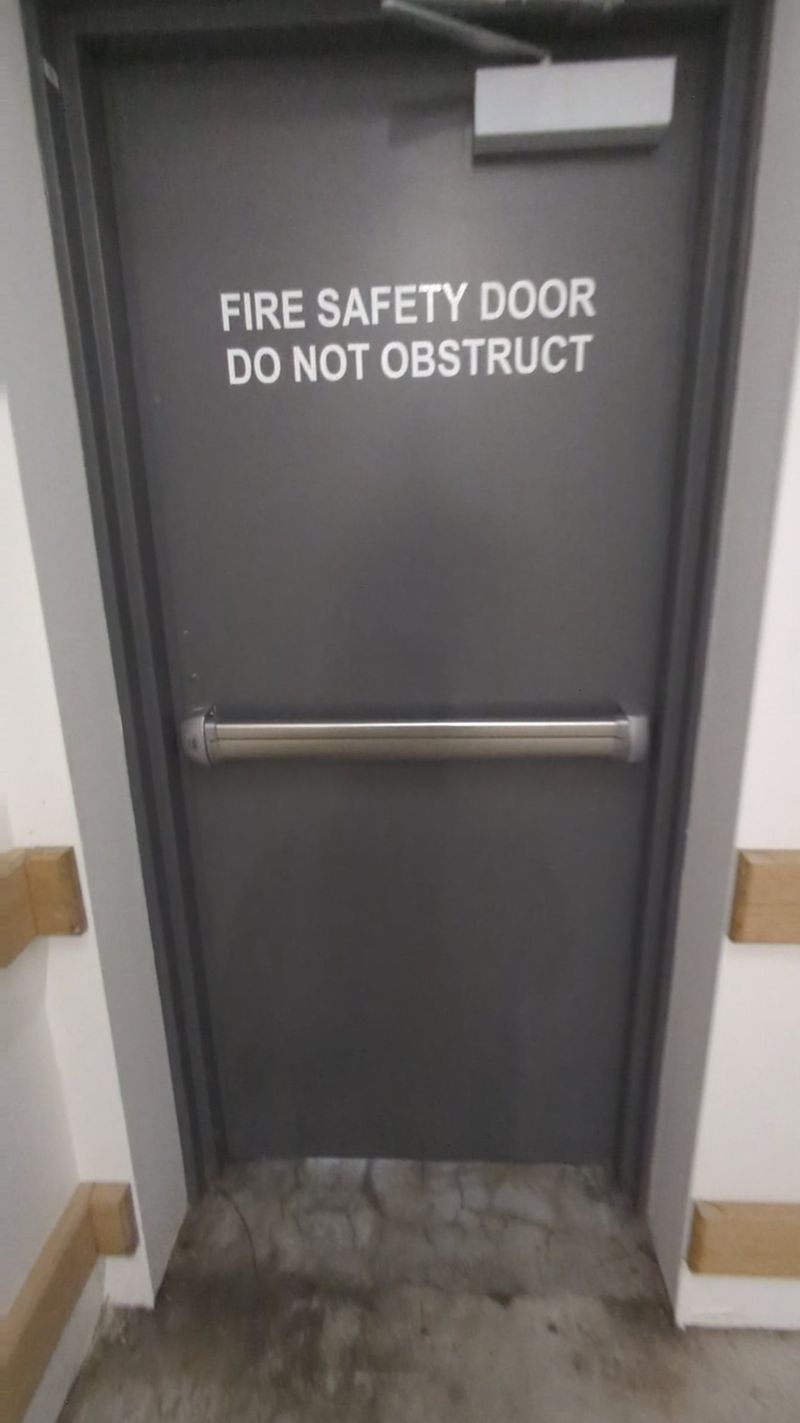
Discovering blocked or locked emergency exits violates fire safety codes and puts lives at risk. All exit doors should be clearly marked, easily accessible, and unlocked from the inside.
During safety inspections at hotels where I worked, this violation warranted immediate correction. Legitimate hotels prioritize guest safety above all else. Exit doors might have alarms but should never require keys to open from inside.
If you notice chained emergency doors, exits blocked by furniture, or missing exit signs, report it immediately to management. If they don’t address it, contact local fire authorities. This isn’t just about one night’s comfort—it could be a life-or-death situation in an emergency.
11. Unmarked Entrance Doors
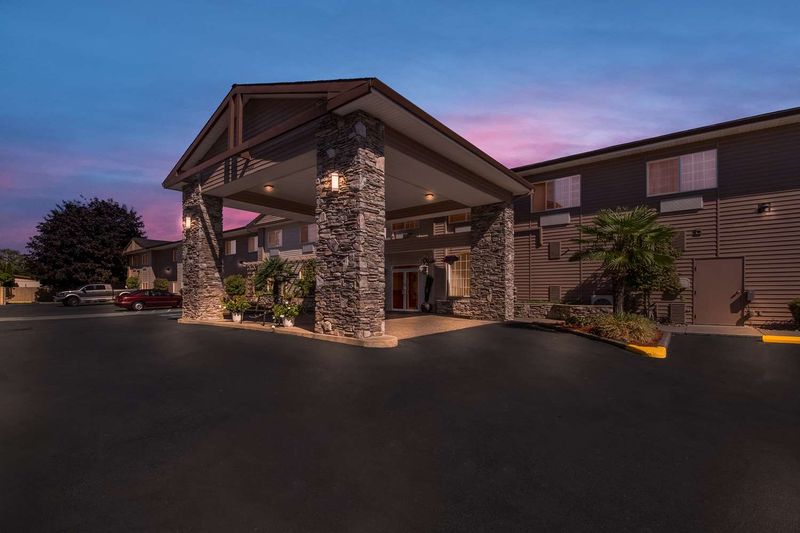
Hotel entrances should be clearly marked with proper signage and adequate lighting. Unmarked or poorly lit entrances create security risks and navigation difficulties, especially at night.
Professional properties maintain visible exterior and interior wayfinding systems. When I managed hotel renovations, proper entrance identification was always a priority. Confusing or hidden entrances often indicate properties cutting corners on basic operational standards.
Beyond convenience, this issue affects safety. Emergency responders need clear access points, and guests need obvious entry/exit paths. If main entrances lack proper identification, it suggests the property may be equally negligent about marking emergency exits, stairwells, and other crucial navigation points throughout the building.
12. Strong Chemical Smell

Overwhelming cleaning chemical odors often mask bigger problems. While cleanliness is important, excessive chemical smells frequently indicate hasty cleaning of serious issues like vomit, smoke damage, or mold.
Having managed housekeeping departments, I know professional cleaning leaves minimal odor. Strong bleach or perfumed scents typically suggest covering up rather than properly addressing problems. These chemicals can also trigger allergies or respiratory issues.
Most concerning is when these smells are concentrated in your room rather than just in hallways. This could indicate the room wasn’t properly ventilated after intensive cleaning, possibly following a pest treatment or to hide cigarette smoke in non-smoking rooms. Request a different room if you encounter strong chemical odors.
13. Asking for Full Payment Early

Hotels requesting full payment upfront before showing you to your room can signal cash flow problems. Standard practice is to authorize your card at check-in but only charge it at checkout.
Working in hotel accounting, I saw desperate properties demand full prepayment when facing financial troubles. Legitimate hotels typically place a hold for incidentals rather than collecting complete payment immediately.
This practice limits your leverage if problems arise with your room. Once they have your money, addressing issues becomes more difficult. Be especially wary if they insist on cash payments or won’t provide detailed receipts. These could indicate attempts to operate outside normal financial tracking systems.
14. Missing Room Info Sheet
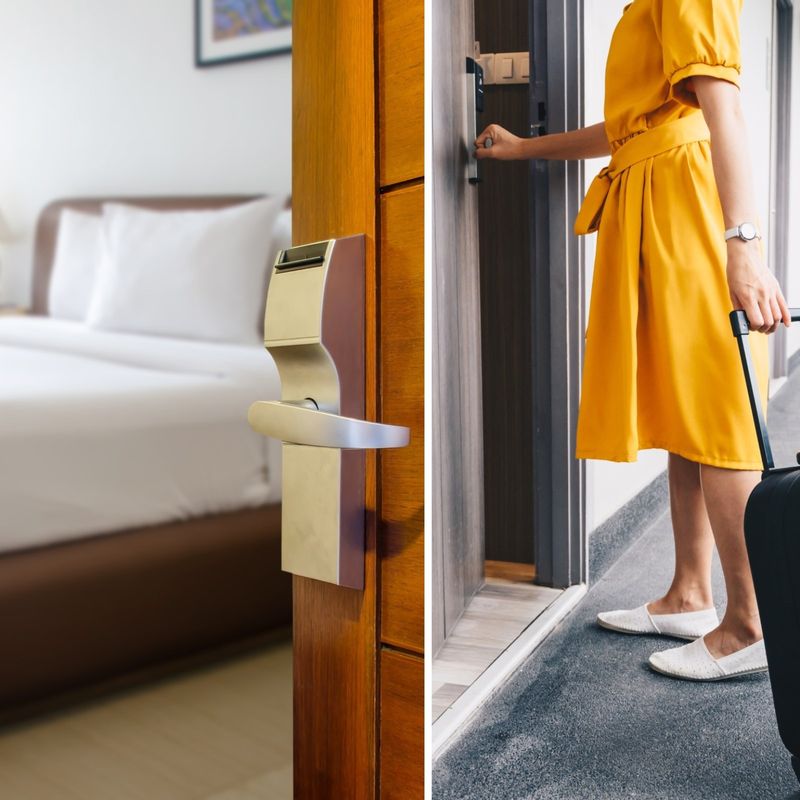
Professional hotels provide information sheets detailing amenities, Wi-Fi passwords, breakfast hours, and emergency contacts. Missing this basic material suggests disorganization or deliberately withholding service information.
Creating these materials was standard procedure at every property I managed. Their absence often indicates a pattern of poor communication. Without clear information, guests frequently face frustration about basic services and hidden fees.
Ask specifically for this information if not provided. Watch staff reactions—hesitation might mean services advertised online don’t actually exist or operate on very limited schedules. Quality properties are transparent about their offerings and eager to help guests maximize their stay through clear, readily available information.
15. No Visible Fire Plan
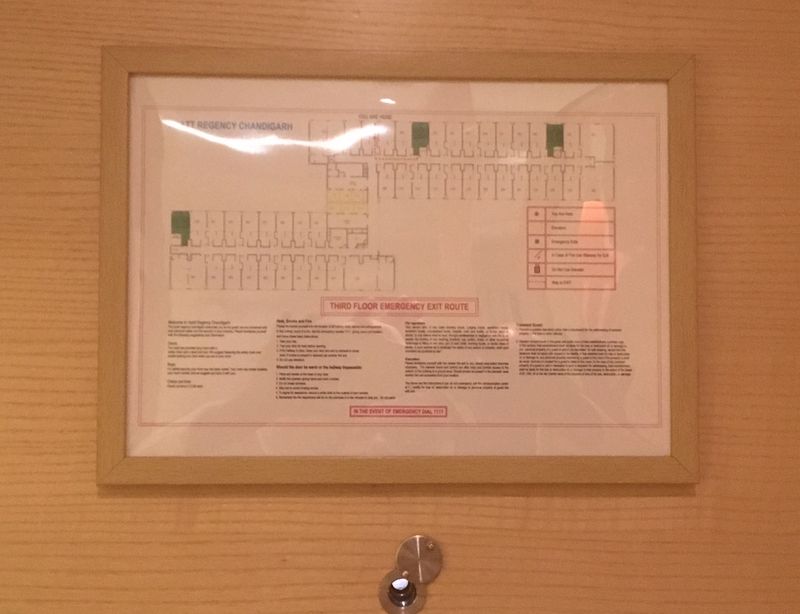
Hotels must have clearly posted evacuation routes and fire safety information in rooms and hallways. Their absence indicates serious safety negligence and possible code violations.
Fire safety was non-negotiable at properties I supervised. Every room should have evacuation maps on door backs and corridors should feature directional signage to exits. These aren’t optional decorations—they’re life-saving tools during emergencies.
If you don’t see these critical safety elements, ask management about their emergency procedures. Vague answers suggest the property isn’t compliant with local safety regulations. Consider whether saving money on your accommodation is worth risking your safety in a building without proper emergency planning.
16. Check Room Immediately (Must-Know Tip)
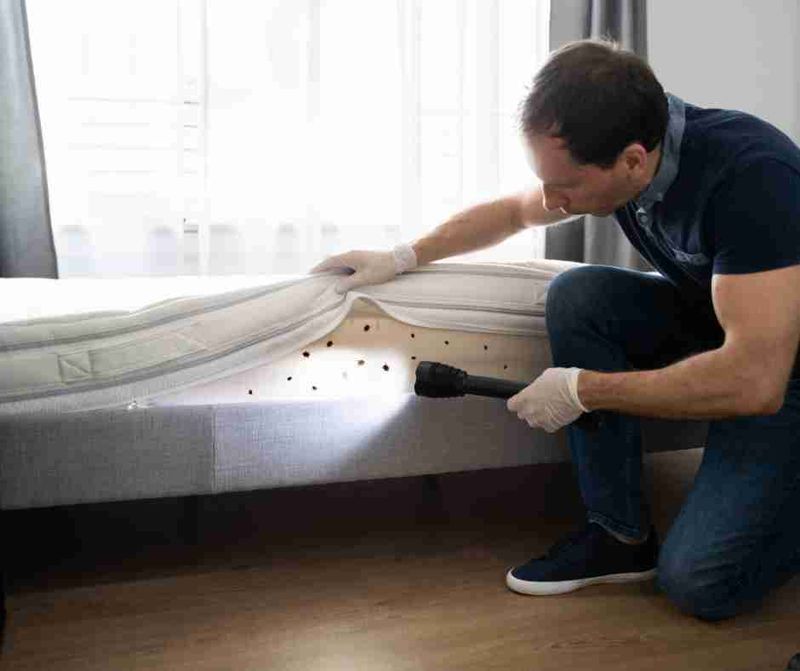
Never settle into your hotel room before inspecting it thoroughly. Smart travelers check beds for bedbugs, bathrooms for cleanliness, and ensure all amenities actually work before unpacking.
During my hotel career, I noticed guests who discovered problems immediately were more likely to receive room changes or upgrades. Examine sheets for stains, check for mold in bathroom caulking, and test the TV, lights, air conditioning, and water pressure.
If issues exist, report them right away while front desk staff can still easily move you. Waiting until you’ve unpacked or until later in the evening significantly reduces your options, as higher-category rooms may fill up and housekeeping staff may have departed for the day.
17. Ask for Higher Floor (Must-Know Tip)

Requesting a room on a higher floor improves both safety and quality of stay. Ground floor rooms are more vulnerable to break-ins and typically noisier from street traffic and lobby activity.
My years in hotel security confirmed that rooms above the fourth floor experience fewer security incidents. Higher floors also tend to have better views and less noise pollution. Many hotels actually reserve their best-maintained rooms for higher levels.
If concerned about emergencies, request a higher floor but near stairwells. Most fire equipment can reach up to the eighth floor, making floors 4-7 ideal for balancing safety with security. This simple request costs nothing but can significantly improve your stay.
18. Confirm Reservation Details (Must-Know Tip)
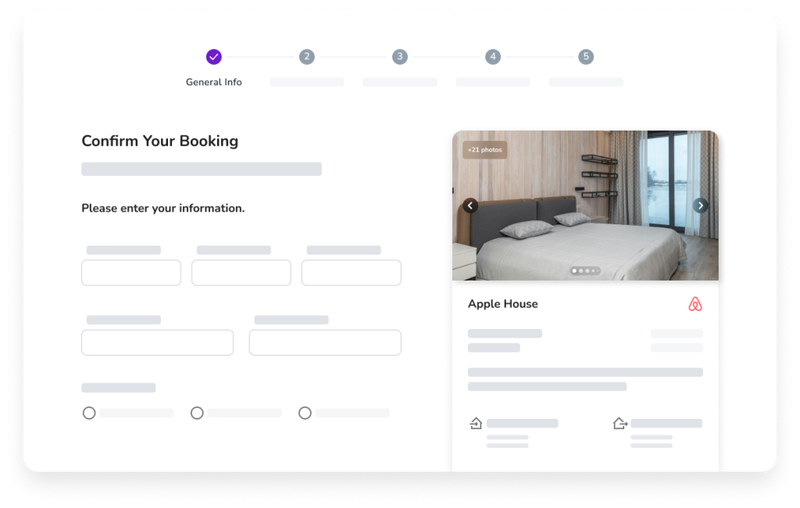
Always verify your reservation details at check-in, even when tired after traveling. Confirm the room type, rate, included amenities, and checkout date before accepting your key.
Working at hotel front desks, I witnessed countless guests discover discrepancies too late. Have your booking confirmation ready on your phone or printed. Pay special attention to promised amenities like breakfast, parking, or Wi-Fi that might mysteriously disappear from your package.
If something doesn’t match, address it immediately. Hotels are more likely to honor advertised rates and promised features when challenged at check-in rather than checkout. This verification takes just minutes but can prevent significant frustration and unexpected charges later.
